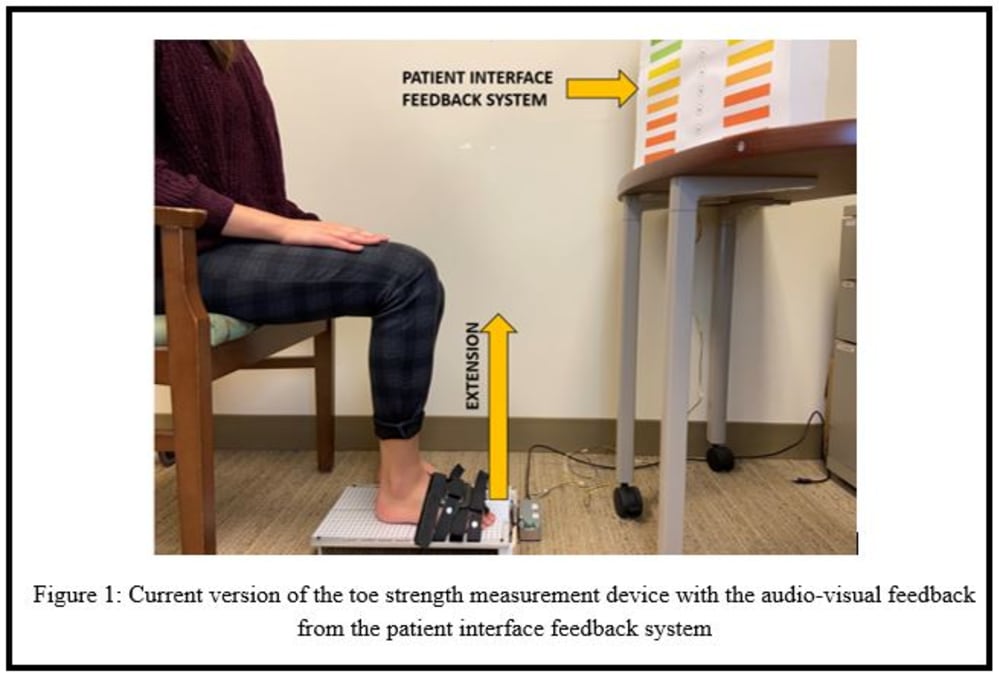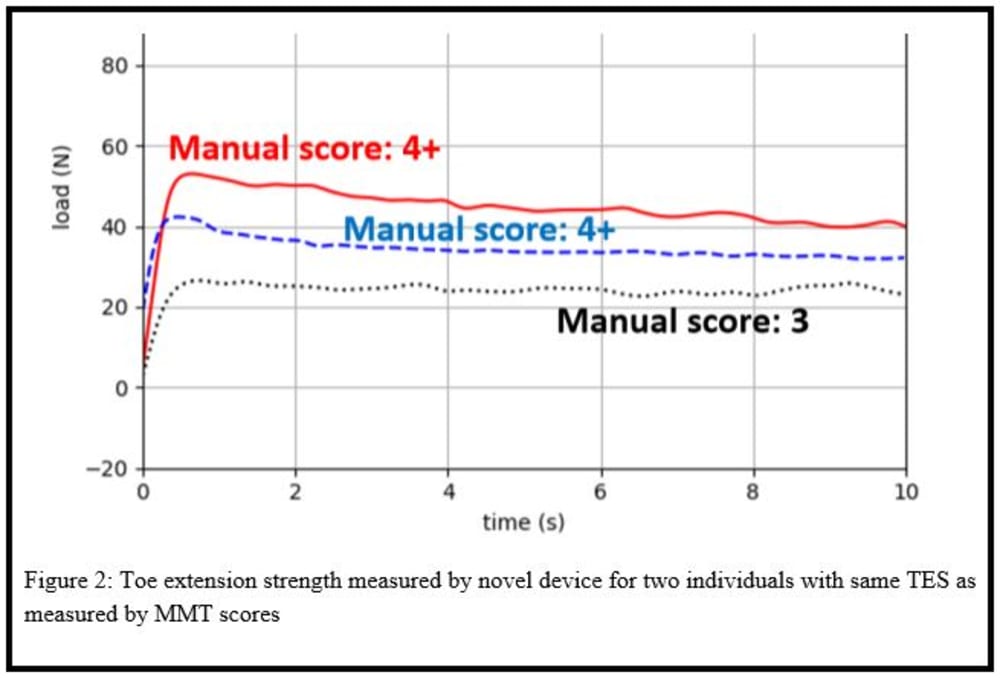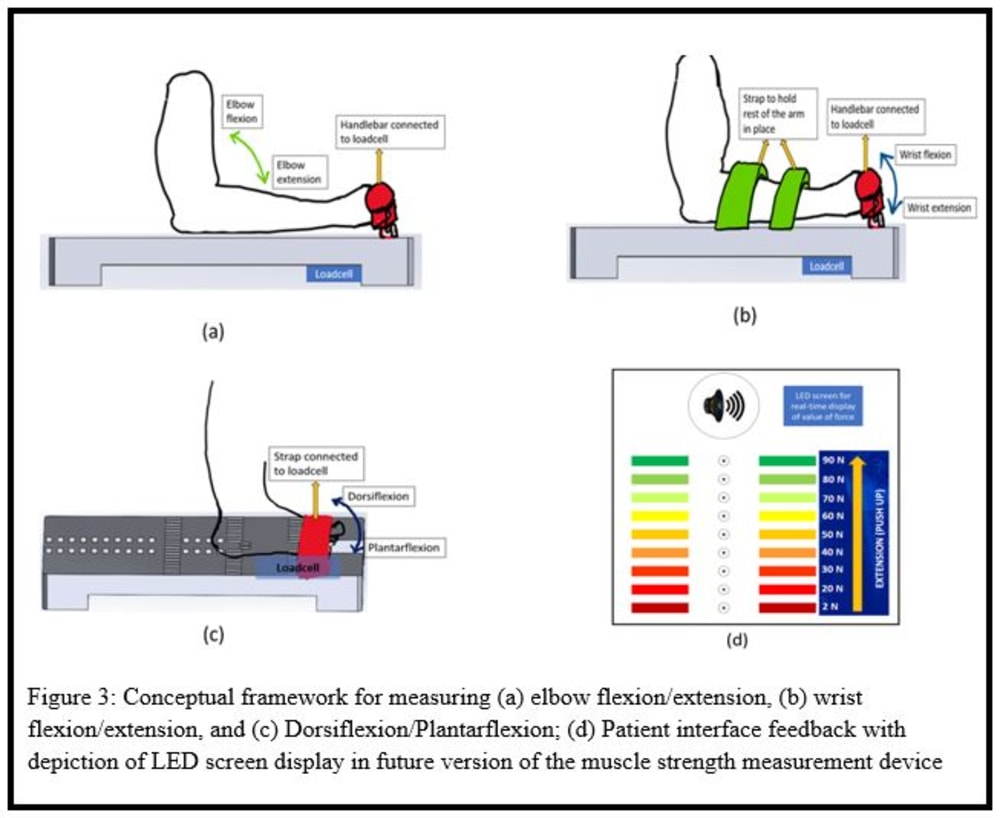PROBLEM STATEMENT
- Common symptoms of neurological disorders include numbness, leg pain, spasticity, muscle weakness, and loss of range of motion, which further lead to impairments in balance, gait, and functional ability.
- Toe extension strength (TES) of the big toe, often ignored among other muscle strength outcomes, is an important outcome that has been associated with disturbances in balance, gait, and mobility.
- Measurement of muscle strength is often overlooked due to the subjective nature such as Manual Muscle Testing (MMT) and hand-held dynamometers.
- A more objective, reliable, and accurate measure of muscle strength such as TES that is often ignored is necessary as it could potentially aid in early detection of disabling neurologic conditions such as peripheral neuropathy
- Early detection can result in providing timely intervention and maximizing quality of life.
SOLUTION
- Our novel device was developed primarily to measure TES of the big toe (Figure 1)
- The device can measure force up to 100 N, with an accuracy of ±0.40 N. The device is also capable of computing multiple parameters to quantify toe strength.
- The parameters are repeatable and sensitive to small changes that are not easily detectable by MMT, the current gold standard for TES measurement (Figure 2).
- In addition to TES, it is necessary to have an objective and reliable method to measure muscle strength at all the joints such as the ankle, wrist, elbow, etc.
- It is also important to make the device easily affordable and accessible for all individuals from communities of varying backgrounds and economic statuses for in-home use.
- The device consists of audio as well as visual feedback as shown in Figure 1
- The current version of the device consists of suction cups at the bottom of the device to secure it to the floor as shown in Figure 1.
FUTURE VERSION/NEXT GENERATION OF NOVEL DEVICE
- The conceptual framework for the design of the measuring device for the elbow, wrist, and ankle joints, are depicted in Figure 3.
- The next version of the device will include a WiFi or Bluetooth Low Energy (BLE) module for wireless communication between the device and the computer as well as patient interface.
- The suction cups will also be replaced with a portable docking station that can be mounted to the floor or wall into which the novel device can be secured prior to measurement.
- The docking station will be designed to be adaptable to the health stations at local pharmacies in the United States such as CVS and Walgreens to make the device more accessible to the public
Like this entry?
-
About the Entrant
- Name:Raghuveer Chandrashekhar
- Type of entry:teamTeam members:Hongwu Wang, PhD
- Patent status:pending








